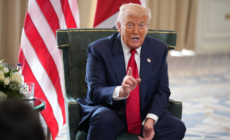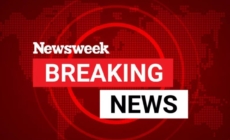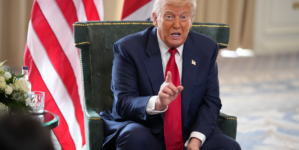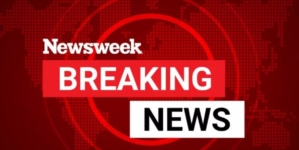-
After Park Avenue Shooting, Anti-Muslim Disinformation Spread Rapidly - 12 mins ago
-
MLB Insider Reports Cardinals’ Top Priority Is Trading Closer At Deadline - 13 mins ago
-
Metro can move forward on subway car plans ahead of Olympics after deal - 26 mins ago
-
Trump’s Approval Rating Margin Hits Second Term Low: Poll - 48 mins ago
-
Ghislaine Maxwell Lawyer Says She Will Only Testify for Immunity or Clemency - 55 mins ago
-
Police Respond to Illinois Westfield Old Orchard Mall in Skokie - about 1 hour ago
-
Morton Mintz, Muckraking Crusader for Consumers, Dies at 103 - 2 hours ago
-
Bet365 Bonus Code WEEK365: Claim $150 Bonus For Cubs-Brewers, Any MLB Game - 2 hours ago
-
UK Will Recognize Palestinian Statehood In September, Unless Israel-Hamas Cease-Fire is Reached - 2 hours ago
-
Trump administration maneuvers to keep Essayli as L.A.’s top federal prosecutor - 2 hours ago
China Watchers React As Trump Caves to Beijing on Key Issue
The Trump administration’s alleged decision to block Taiwanese President Lai Ching-te from making a stopover in New York has drawn criticism from policy experts, with some saying it marks a clear concession to Beijing during sensitive U.S.-China trade talks.
Citing three sources familiar with the matter, British newspaper Financial Times wrote Monday that Trump administration officials refused Lai transit through New York en route to diplomatic allies in Central America.
Newsweek reached out to the White House and the Chinese Embassy in the U.S. outside of office hours via email requests for comment.
Why It Matters
Beijing, which claims Taiwan as part of its territory, has repeatedly objected to any U.S. engagement with Taiwanese officials. The United States maintains unofficial ties with Taiwan under the Taiwan Relations Act, but has traditionally tried to balance its support for the island with efforts to avoid provoking Beijing.
Taiwanese presidents, including Lai and his predecessor Tsai Ing-wen, have in the past made stops in the U.S., during which they met with pro-Taiwan officials, en route to diplomatic visits in the Americas. Trump’s alleged decision may signal a willingness to forgo precedent in favor of smoothing talks with Beijing.
What To Know
Analysts warn that treating Taiwan as a flexible bargaining chip, rather than a fixed American commitment, risks undermining the island’s security and international standing.
Ely Ratner, a former Pentagon official under the Biden administration, wrote on X: “Extraordinary mismanagement of the Taiwan relationship.”
Aaron Astor, a professor of history at Maryville College, also voiced concern on the platform: “I was told the Trump Administration was going to confront the People’s Republic of China and not … deny Taiwan’s president the right to pass through the US.”
“Please tell me this is fake news or a simple screwup and is not Trump yielding to Xi for a trade deal,” Astor added.

AFP via Getty Images
What People Are Saying
Nancy Pelosi, member of Congress (CA-11) and former House speaker, called the move a “victory for Xi.”
“Donald Trump’s decision to deny permission for President Lai to visit New York sends a dangerous signal: that the United States can be bullied by Beijing into silence on Taiwan,” Pelosi wrote on X.
Bonnie Glaser, managing director of the U.S. Indo-Pacific Program at the German Marshall Fund, was quoted in the Financial Times report: “By signaling that aspects of the U.S. relationship with Taiwan are negotiable, Trump will weaken deterrence and embolden Xi to press for additional concessions regarding Taiwan.”
Ryan Fedasiuk, adjunct professor at Georgetown University’s Security Studies Program, wrote on X: “Many long-standing China hands are too polite to say it, so I will: In a normal world it would be inconceivable that the United States would accede to Beijing’s demand to pull down a routine transit by Taiwan’s President.”
Fedasiuk added that the decision highlights serious problems in U.S. policy toward China, saying that it came on the heels of the administration’s move to relax export controls on advanced chips to the U.S. ally.
What Happens Next
Hsiao Kuang-wei, Taiwan’s foreign ministry spokesperson, told Newsweek that there was “no such thing as a postponement, cancellation, or the U.S. side refusing a transit stop.”
“As in the past, once the itinerary for a presidential trip is finalized, the Presidential Office will announce and explain it to the public in due course,” the official said.
Asked during Tuesday’s Chinese Foreign Ministry press conference whether Beijing had contacted the U.S. about Lai’s prospective transit, spokesperson Guo Jiakun said that China firmly opposes any form of official contact between the U.S. and Taiwan.
Source link

















